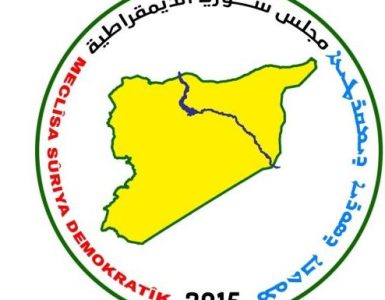The political parties operating in Raqqa have discussed the mechanisms of the Syrian national dialogue and its key pillars, based on role allocation, strengthening relationships, and understanding the requirements of the stage.
This took place during the second session of the Political Salon program launched by the Relations Bureau of the Syrian Democratic Council on Wednesday in Raqqa, with the presence of representatives of seven political parties.
The session was begun with a speech by the Co-Chairman of the Relations Bureau of the Syrian Democratic Council, Hassan Muhammed Ali, about the Syrian scene and the absence of prospects for a resolution, which requires tremendous efforts to propose rational solutions for Syrians.
He continued discussing the strategies adopted by the SDC and the path it is leading to resolve the Syrian crisis, as well as the sources of power possessed by the council that uses them to settle the Syrian crisis and end the suffering of Syrians, whether inside or outside the country.
Muhammed Ali added that the SDC is working on multiple paths and has managed to reach agreements, the latest of which was with the Coordination Body, and efforts of the Council are ongoing to engage with all Syrian parties. The hope for Syrians lies in the areas of northeastern Syria.
During the session, several proposals and plans were put forward to be worked on them in the coming stage. Several discussions took place, the most prominent of which were the proposals put forward by some party representatives regarding the consensus among parties and their political and social programs.
Mansour Al-Sheikh, a member of the Public Relations Committee of the Future Syria Party, called for the participation of the international community in the trials of ISIS members and for the international recognition of the Autonomous Administration.
Mustafa Othman, the spokesperson for the Organization Committee of the Democratic Union Party, called for strengthening individual and community initiatives in developing relationships, avoiding stereotypes in party work, promoting awareness, and enhancing the sense of belonging and citizenship within the community.
Meanwhile, Thubiyah Al-Nasser cited India’s experience during its liberation from British colonialism, emphasizing the need to rely on self-sufficiency and develop party movements.
At the end of the Political Salon session, several proposals were adopted, and how to implement them practically was explained by the council, as well as the presence of national powers and figures concerned with the Syrian issue was discussed in order to reach a comprehensive Syrian national dialogue.



















